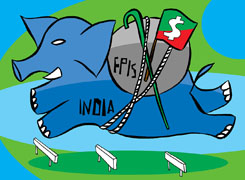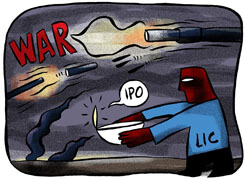Should I withdraw my PF before renouncing Indian citizenship?
Milind Vadjikar |1216 Answers |Ask -Follow
Insurance, Stocks, MF, PF Expert - Answered on Sep 25, 2024
He has a mechanical engineering degree from Government Engineering College, Sambhajinagar, and an MBA in international business from the Symbiosis Institute of Business Management, Pune.
With over 16 years of experience in stock investments, and over six year experience in investment guidance and support, he believes that balanced asset allocation and goal-focused disciplined investing is the key to achieving investor goals.... more

Hi, I left India for onsite assignment 9 years ago and planned to settled and obtain citizenship of my current location. I am still with the same company however my employment status changed to home country assignment and my PF contribution in India got stopped at the time I traveled. Now, before proceeding with surrendering my India citizenship, should I withdraw my PF fund?
You may like to see similar questions and answers below
Mihir Tanna |1053 Answers |Ask -Follow
Tax Expert - Answered on Jan 05, 2024
Sanjeev Govila |458 Answers |Ask -Follow
Financial Planner - Answered on Dec 06, 2023
Ramalingam Kalirajan |8334 Answers |Ask -Follow
Mutual Funds, Financial Planning Expert - Answered on May 29, 2024
Milind Vadjikar |1216 Answers |Ask -Follow
Insurance, Stocks, MF, PF Expert - Answered on Oct 15, 2024
Shalini Singh |154 Answers |Ask -Follow
Dating Coach - Answered on May 13, 2025
Milind Vadjikar |1216 Answers |Ask -Follow
Insurance, Stocks, MF, PF Expert - Answered on May 12, 2025
Milind Vadjikar |1216 Answers |Ask -Follow
Insurance, Stocks, MF, PF Expert - Answered on May 12, 2025
Milind Vadjikar |1216 Answers |Ask -Follow
Insurance, Stocks, MF, PF Expert - Answered on May 12, 2025
Milind Vadjikar |1216 Answers |Ask -Follow
Insurance, Stocks, MF, PF Expert - Answered on May 12, 2025
Ramalingam Kalirajan |8334 Answers |Ask -Follow
Mutual Funds, Financial Planning Expert - Answered on May 12, 2025
Prof Suvasish Mukhopadhyay |636 Answers |Ask -Follow
Career Counsellor - Answered on May 12, 2025
Prof Suvasish Mukhopadhyay |636 Answers |Ask -Follow
Career Counsellor - Answered on May 12, 2025
Radheshyam Zanwar |1616 Answers |Ask -Follow
MHT-CET, IIT-JEE, NEET-UG Expert - Answered on May 12, 2025
Ramalingam Kalirajan |8334 Answers |Ask -Follow
Mutual Funds, Financial Planning Expert - Answered on May 12, 2025



























